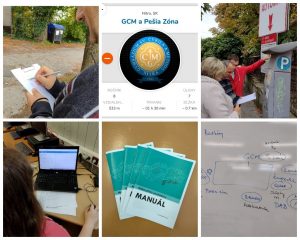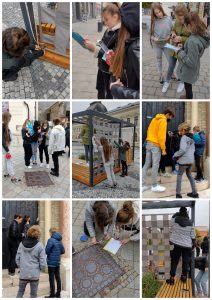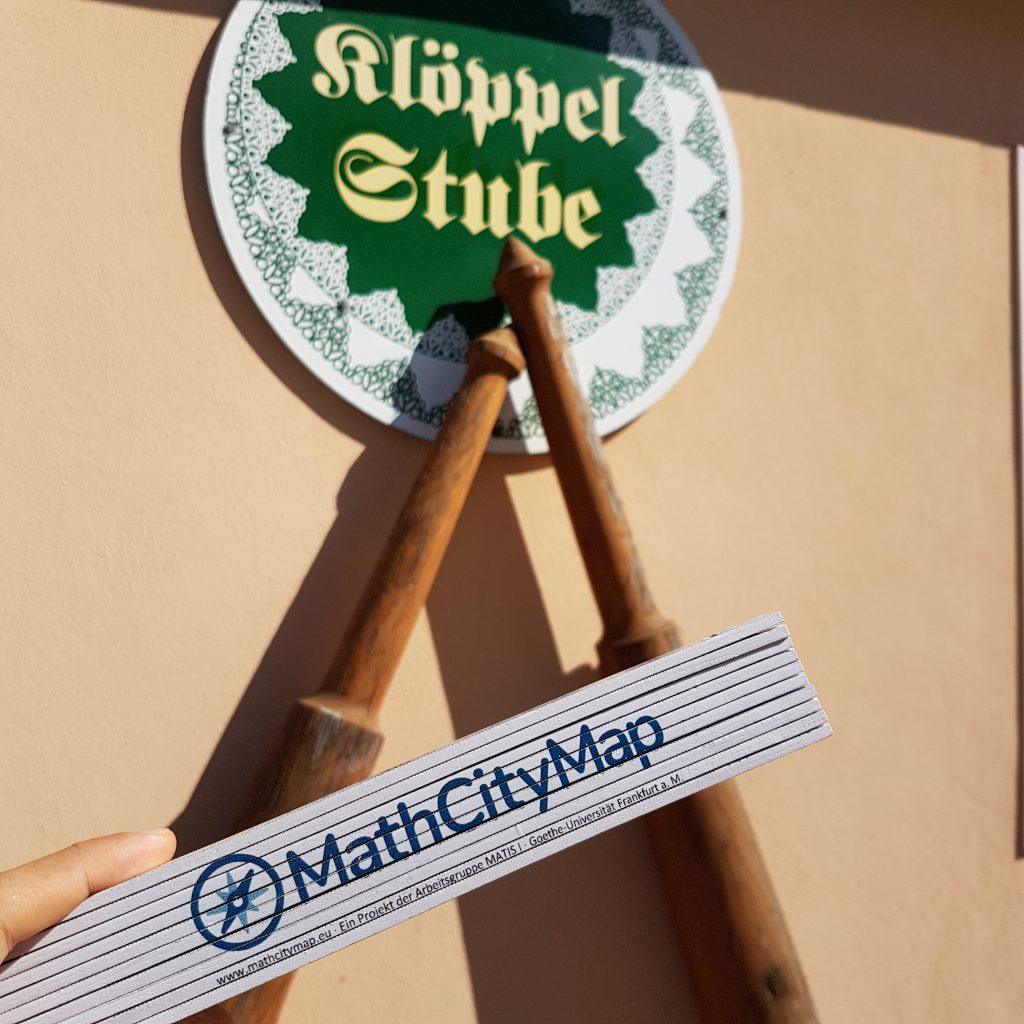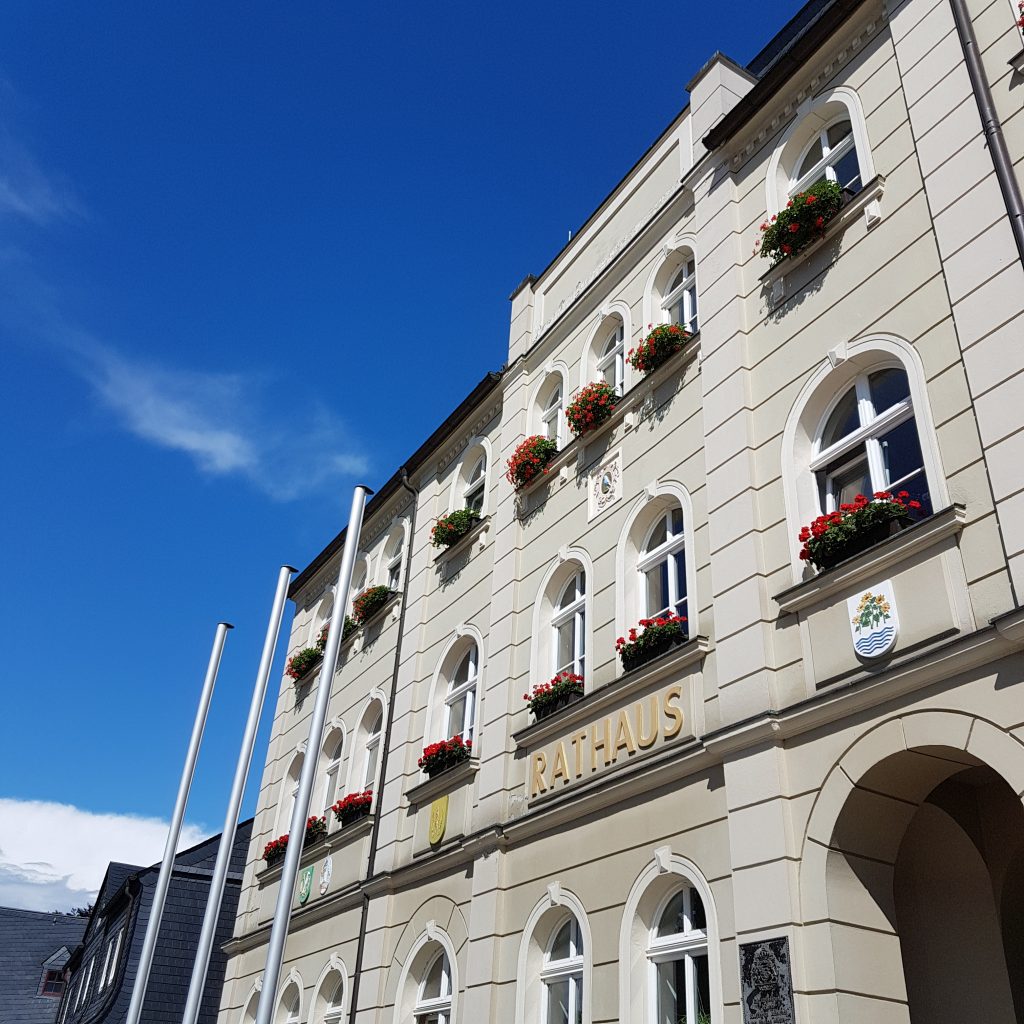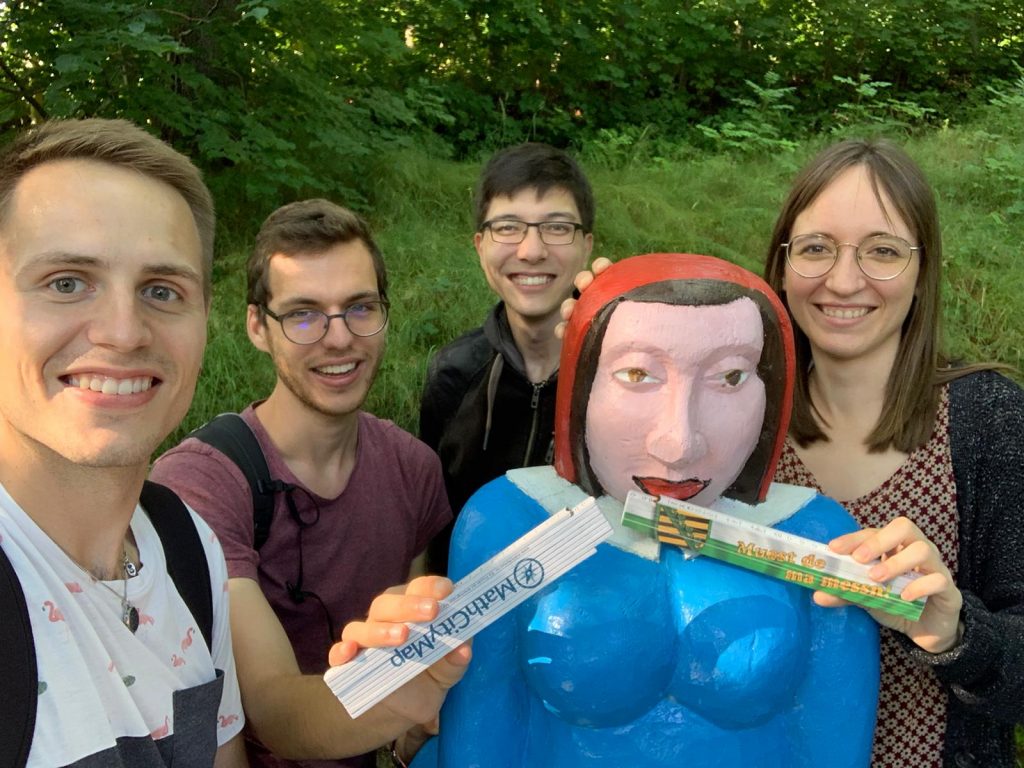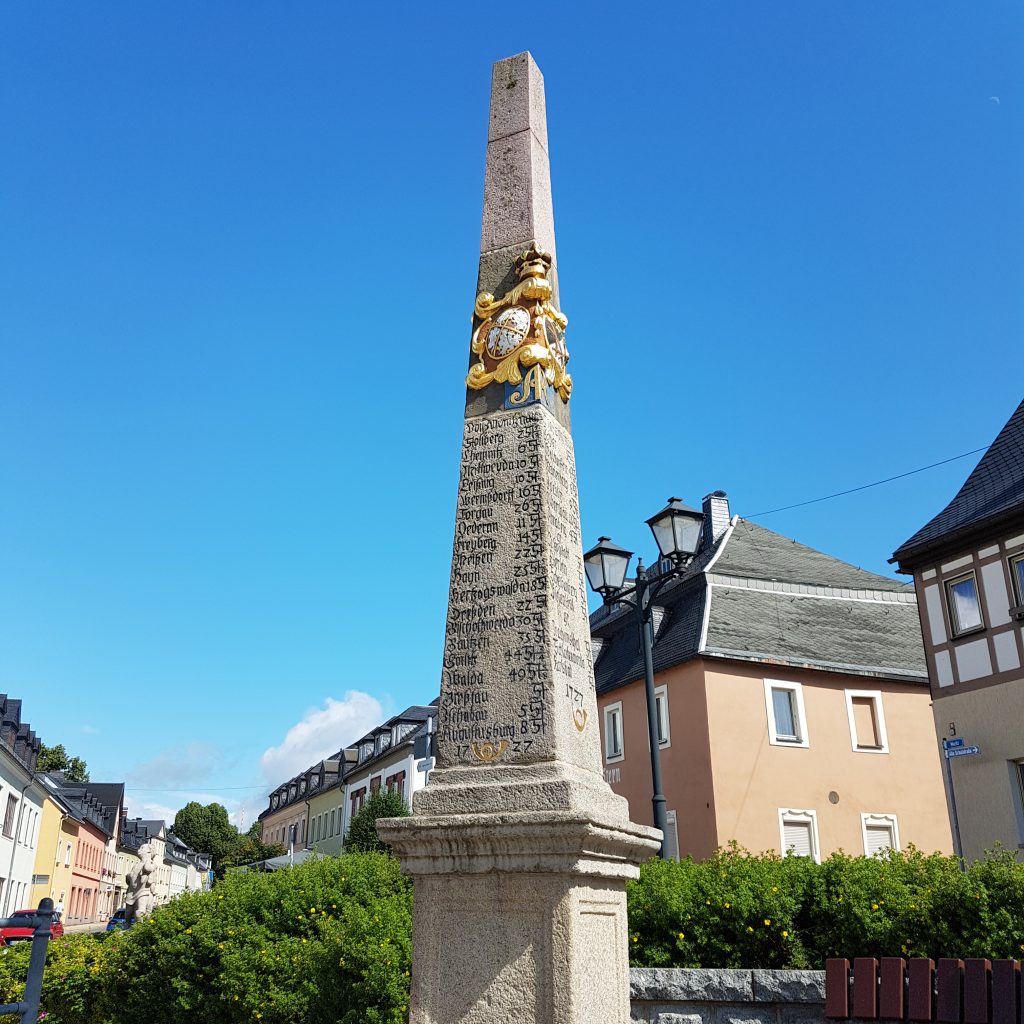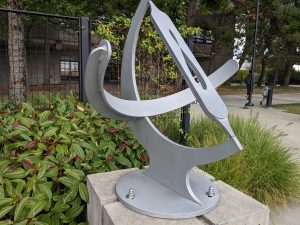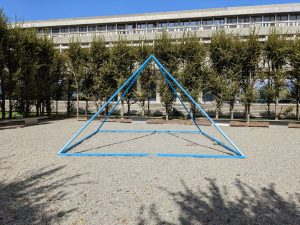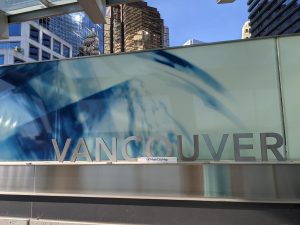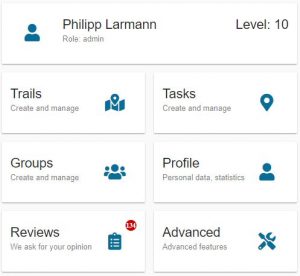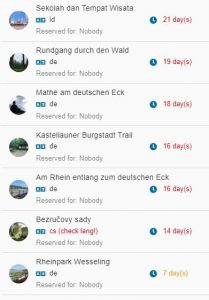Dear users of MathCityMap,
we are very happy to present you the first official MathCityMap partner school! The Gymnasium Trudering has successfully applied and is now allowed to use the title MCM partner school!
The possibility to become an MCM partner school was introduced within the MaSCE³ project and the path to this title for interested schools is as follows:
Step 1: Visit www.mathcitymap.eu and get familiar with the MathCityMap system. If you like it, ask your colleagues to join you in your plans to become an MCM partner school!
Step 2: Create 15 tasks and 2 trails for different grades close to your school. The tasks and trails should be published in our system, peer-reviewed by your colleagues and downloaded at least 5 times by your students.
Step 3: Send your application to info@mathcitymap.eu including the trail numbers and your experiences with the trails. If you have met all the requirements, your school will be named an MCM partner school!
The students of the Gymnasium Trudering now receive measuring tools and materials from us to successfully work on Mathtrails in class. In addition, the Gymnasium will receive an official MCM partner school plaque for their main entrance and will always be informed about the latest developments of MathCityMap. As soon as the network of partner schools grows, we will provide for an international exchange between the different partner schools within the framework of the partner school project, from which all participating schools will benefit.
The whole process is completely free of charge for all schools and is co-funded by Erasmus+. You can find all further information here.
We are already looking forward to welcoming more schools as MCM partner schools! Below you will find a report about the journey of Gymnasium Trudering to become the first MCM partner school.
Our teacher was excited about the idea of using math in real and authentic situations. So were we when we heard about it. Therefore, we, the P-Seminar MathCityMap 2020/22, had set ourselves the goal of creating an interactive MathTrail directly in the natural environment. This trail should not be too difficult, but still challenging. But this was a long way.
At first we studied the already created trails and tasks in Munich. Afterwards, we and one of our Q11 courses ran the trail “Discovery trip in Riemer Park” by Mrs. Haupenthal and made experiences with the digital classroom on the student side. Our P seminar course participated in the MathCityMap MOOC (Massive Open Online Course) as part of the Erasmus+ project MaSCE. It was a special experience for us to participate in a MOOC training with more than 500 international guests. We enjoyed the course very much. Through video clips we learned how to use the program to create trails and learned some background information about the project.
Once the use of the MathCityMap software had become clear, the course set out to create creative tasks in nature. Riemer Park was determined as the place where the tasks were to be located. Everyone then independently created two tasks in Riemer Park that could only be solved on site and associated with an activity (measuring, counting). An MCM task includes a representative photo of the object, a title, a task description, the exact position, the task type (e.g. interval, exact value, multiple choice, etc.), a sample solution, hints, indication of the class, tools (e.g. folding rule, measuring tape, measuring jar, watch, calculator, etc.) and tags. In the context of the P-Seminar MathCityMap we have made it our goal to make mathematics fun for everyone in a modern and playful way. Especially finding and creating tasks was an exciting change in the homeschooling time. It is amazing to see where you can find mathematics on the street, if you just walk around with your eyes open. So you can find tasks for almost all topics, which create an interesting connection between school and reality. Even a simple tree can become a tricky task. Lower grades in particular often find it difficult to understand what they are learning and for what purpose. This is where we wanted to start with our seminar: To get students excited about mathematics in an interesting way.
Teams were formed to develop the outdoor tasks. The tasks were posted on the web portal Mebis for everyone involved to review. There was a correction team and a team for viewing the curriculum. From the individual tasks, the route of the trail was again jointly determined, which in times of distance learning also ran via the MS Teams conference software. It was jointly considered which tasks could be grouped into so-called trails based on the subject matter and location. In total, two trails were created, each with at least six tasks in Riemer Park. After the two trails had been created, the course also decided to create a trail around the school, designed for the fifth grade of the Trudering Gymnasium.
At the end of the project on 27/10/2021, a digital classroom and a walkthrough of the trail around the school were organized with the fifth grade. We evaluated the experiences made with the 5th grade. With the “Gamification” and “Narrative Pirates” settings in the MCM web portal, in our opinion, especially younger students are motivated and a competitive character is conveyed, which facilitates the achievement of learning goals and incidentally leads to the acquisition of competencies. We were particularly pleased with the positive feedback from the students after the trail was carried out with a 5th grade class. One planned trail turned into five in the end, and with Ms. Haupenthal’s trail developed during the MOOC, we created a total of 6 trails.




